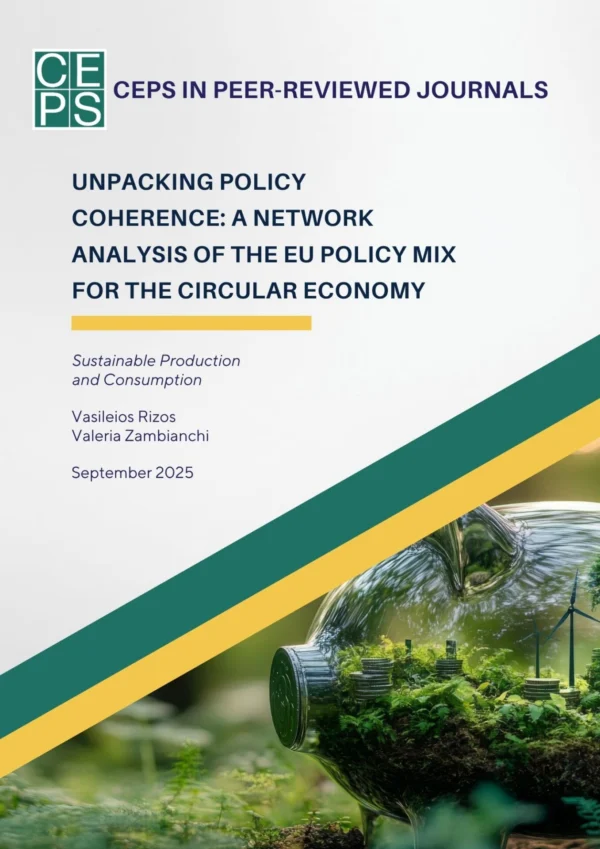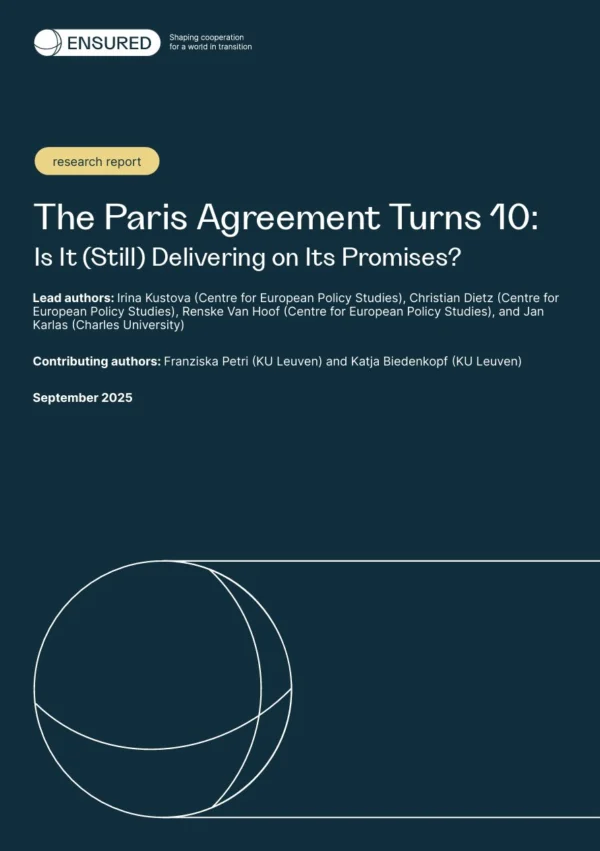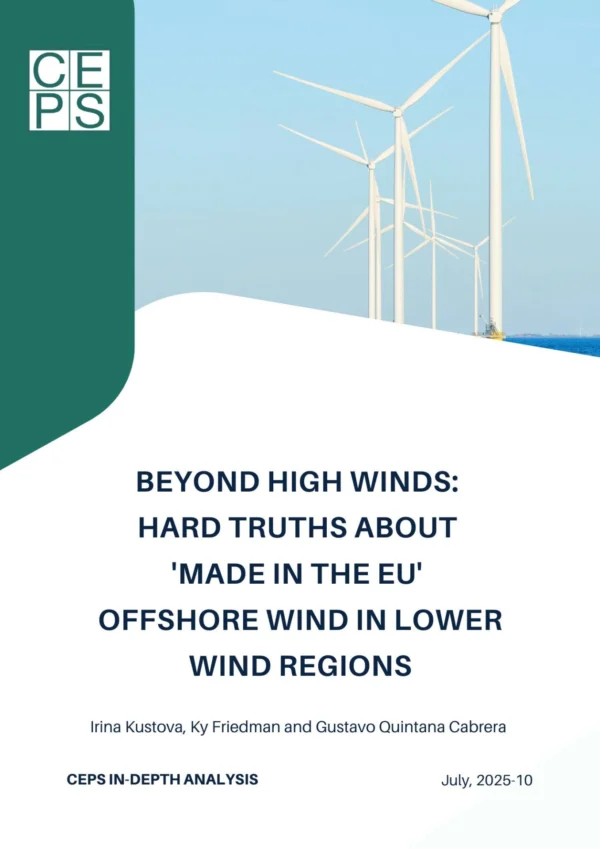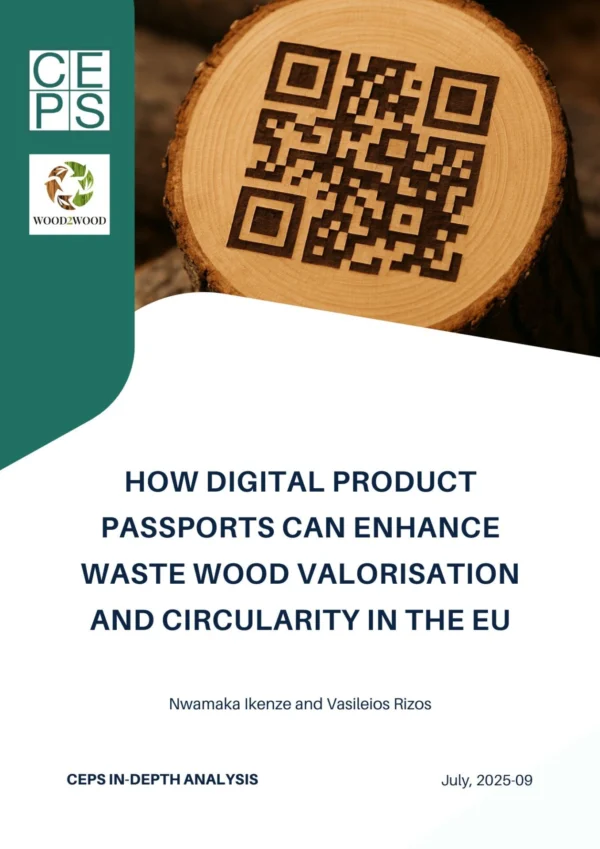In this contribution, Jaap Jansen finds that the practice of automatically issuing guarantees of origin (GOs) to all producers of renewable energy undermines EU energy and climate objectives.
Dictated by the EU Renewable Energy Directive 2009/28/EC, a guarantee of origin (GO) is an instrument issued on their request to producers of electricity from renewable sources. GOs are used by suppliers (companies) as evidence that a corresponding quantity of electricity they delivered (consumed) was generated from renewable energy sources (RES). A recent Joint Statement on Guarantees of Origin (GOs) from a group of nine stakeholder organisations[1] representing general and specifically renewable power suppliers, officially designated GO issuers, certificate traders, renewable project developers and multinational companies, contains four propositions:
- Use of GOs for renewable electricity disclosure should be mandatory.
- All electricity produced from renewable energy sources (RES) should automatically receive GOs.
- Mandatory auctioning of GOs for supported production should be avoided.
- Achieving targets for RES used in transport should not be confused with disclosing origins of the electricity mix to final customers.
Propositions 1, 3 and 4 will improve the GO system, but proposition 2 warrants closer consideration as the stakeholders group is tacitly demanding that all producers of renewable electricity should be entitled to receive GOs and to market them: “Prohibiting GOs to be issued to producers which receive financial support would cloud the current distinction between support and disclosure systems.” However, if the European GO system is to be properly compatible with EU energy and climate objectives, the following system features are essential across the EU:
- A renewable electricity producer benefitting from a support scheme is not eligible to receive GOs – GOs certifying this kind of production must be cancelled immediately after issuance in order to disclose their pro rata consumption of this production to all electricity consumers in the member state concerned.
- A renewable electricity producer not benefitting from a support scheme, using an installation that has a commissioning date not exceeding, say, 20 years in the past, is eligible to receive GOs – GOs certifying renewable electricity production from older installations must also be cancelled immediately upon issuance in order to disclose their pro rata consumption of this production to all electricity consumers in the member state concerned.
A stark choice
The EU faces a stark choice in reforming the GO system: either to keep the current system broadly in place or to restructure it so that voluntary consumer demand can genuinely drive additional renewable energy capacity and increase renewable energy production in Europe. The stakeholders group wishes to maintain a European GO system that permits legislation in member states entitling all producers of renewable electricity to receive GOs. Such legislation allows issuance of GOs to producers for renewable generation that occurs anyway due to support schemes or legacy investments (e.g. old hydro), which means suppliers or consumers purchasing these GOs do not support additional renewables-based production capacity. This is problematic as consumers may be obliged to pay costs for a GO system with minimal impact on the fuel mix of the electricity supply sector, whilst those opting for a green tariff tend to be misled into thinking that their purchases of renewable energy have environmental integrity. The stakeholders group basically argues that consumers should be able to choose their electricity, regardless of who paid for the support, under the contentious claim of consumer transparency. Is this really what the EU stands for?
Legislation not ensuring environmental integrity erodes the value of a claim of renewable energy consumption. GO prices are mainly determined by demand in major GO importing member states. In a robust EU GO system, the average value of GOs allowed to be issued and used in the main European user countries of GOs will be roughly equal to average support levels in these countries for major low-cost renewable energy categories. To the extent that consumers tend to prefer renewable energy from their own country, imported GOs will be traded at a discount.[2] Marginal renewable energy support levels for the cheapest (major) category in member states with a high demand for GOs tend to be roughly 2- 4 €cent/kWh at present.[3] In these member states, the current cost of GOs is a small fraction of this amount, i.e. in the order of 0.03-0.50 €cent/kWh according to traders. The large gap between these two ranges is indicative of the potential (average) additional renewable energy market value to be gained under a more robust European GO system.
Is it desirable that claims by companies of renewable energy consumption are financed by support schemes? For cost saving reasons they may show preference to reach renewable power procurement agreements (PPAs), for example with developers of projects benefitting from a support scheme in member states condoning issuance of GOs to these project developers. This enables companies to ‘reduce their carbon footprint’ in a way that is largely financed by the support schemes of these member states. Yet the urgency in achieving the global greenhouse gas emission target of the Paris Climate Agreement makes robust GO regulation all the more important. Robust future-proof regulation would enable deliberate consumer choices in favour of renewable energy to genuinely induce additional low-carbon renewable energy, over and above state renewable energy policies and measures.
The stakeholders group states that prohibiting issuance of GOs to producers benefitting from a support scheme will cloud the current distinction between support and disclosure schemes. But rather the opposite holds true. If the GO issuing agency of a member state retains such GOs and assigns them to electricity consumers, the consumers in that member state receive the credit they deserve for enabling the production of renewable energy through their financing of the national support scheme. Household and business consumers wishing to provide additional, voluntary support to renewable electricity generation will then be able to see the effect of their support more clearly because there will be a clear demarcation between renewable electricity facilitated by a support scheme and renewable energy solely driven by additional consumer demand. If GOs issued to certify renewable energy produced from an old installation are treated likewise, consumers will receive additional credit for the fact that their country facilitates, for the good of the world, renewable energy production from these legacy investments. This enhances the credibility of fuel mix disclosure among consumers in countries with a long hydropower tradition. And it further helps consumers who opt for a green tariff to participate actively in the energy transition.
On the contrary, it is the issuance of GOs certifying renewable energy to producers who benefit from a support scheme that really blurs the disclosure picture: it sweeps the distinct consumer contribution to renewable energy production facilitated by a support scheme under the carpet and inhibits consumers from making an additional contribution to the energy transition. Moreover, instead of separating the GO system and support schemes, it intermingles them.
Keeping competition fair
The second argument put forward by the stakeholders group suggests that financial support granted via competitive tenders or certificate systems has proven to be an effective way of preventing overcompensation. With at least the notable exceptions of the joint Danish-German pilot solar PV tenders,[4] this statement is correct up to today. Yet it is expected that when the recast Renewable Energy Directive enters into force, many more joint tenders by two or more member states will be organised. Then, if EU legislation continues to leave it up to each member state whether or not to prohibit issuing GOs to renewable energy producers who benefit from a support scheme, there will be more cases where a tenderer in a jurisdiction that allows trade in GOs certifying supported renewable energy gains a competitive advantage over peers in a jurisdiction, such as Germany, that does not. This is at odds with fair competition in the internal market for energy.
The stakeholders group finally suggests that overcompensation can be prevented when GOs are issued to producers benefitting from a support scheme in states with pre-set support levels by adjusting pre-set levels in a way that reflects the income derived from GOs. This argument holds in theory rather than in the real world. It would require the national regulator to determine the correct adjustment level for the income derived from GOs, which is difficult in practice as GOs are traded bilaterally and GO prices lack transparency.[5] This will become more problematic in the coming decade when, it is expected, the number of long-term renewable PPAs will increase rapidly. It is very difficult for regulators to disentangle the revenues attributable to GOs from the financial transfers resulting from these agreements. So far, all member state regulators have refrained from adjusting support levels on account of income derived from GOs. Even if such adjustments were to be applied in future, these would not only be prone to litigation against the member states concerned, but also to material underrating on account of the asymmetric information challenge to regulators. Besides, as GOs are not homogeneous, regulators would face the further burden of setting differentiated adjustment levels.
To conclude, it seems clear that GO systems allowing automatic issuance of GOs to all renewable energy producers would not only reduce consumer transparency and environmental integrity, but also fail to ensure that green tariff consumers make an additional contribution to a more renewable EU energy system, while undermining fair EU-wide competition and doing little for the credibility of GO-based company suggestions that their energy consumption lowers carbon emissions. Only an EU-wide prohibition of GOs issuance to producers benefitting from a support scheme or using old installations can meet all these objectives.
The table below summarises these findings.
Jaap Jansen is a non-resident Fellow at CEPS – Energy Climate House. The author thanks Matthew Brander, Christian Egenhofer, Aurélie Faure, Phil Moody and Andrea Smith for useful comments on an earlier draft.
CEPS Commentaries offer concise, policy-oriented insights into topical issues in European affairs. As an institution, CEPS takes no official position on questions of EU policy. The views expressed are attributable only to the author and not to any institution with which he is associated.
© CEPS 2018
[1] Eurelectric, Solar Power Europe, Wind Europe, Association of Issuing Bodies, RECS, EFET, ECOHZ, RE100 and RE-Source Platform, Joint Statement on Guarantees of Origin, Brussels, 12 February 2018.
[2] Another cause of discounts is imported GOs that were issued to renewable energy producers using ‘old’ renewable energy production installations. These GOs do not foster investment in new renewable energy capacity. This can be addressed in a technology-neutral way by stipulating that GOs will only be issued to the operator of an eligible renewable energy installation for a suitable pre-set period, say 20 years, equal to the support duration of the support scheme of the most important GO importing member state, Germany. This provides certainty on the period during which eligible investors can expect extra revenues from GO sales.
[3] In Germany and the Netherlands, onshore wind is broadly the lowest-cost major supported renewable power technology. According to RES Legal (www.res-legal.eu) current reference prices for new onshore wind power installations used for setting premium support levels are on average approximately 6.1 €cent/kWh in top GO importer Germany and 6.9 €cent/kWh in major GO importer the Netherlands. At a reference baseload price of 3.5 €cent/kWh the average reference prices above boil down to corresponding premium support levels in Germany of 2.6 €cent/kWh and 3.4 €cent/kWh in the Netherlands. In Germany the (maximum) support period is 20 years, as against 15 years in the Netherlands.
[4] Developers of PV projects in Denmark benefitting from a support scheme can request GOs, whereas their peers in Germany cannot.
[5] See, i.a., a study by the Dutch Bureau of Statistics: CBS, Haalbaarheidsstudie Prijswaarneming GVOs. The Hague, 2014.









